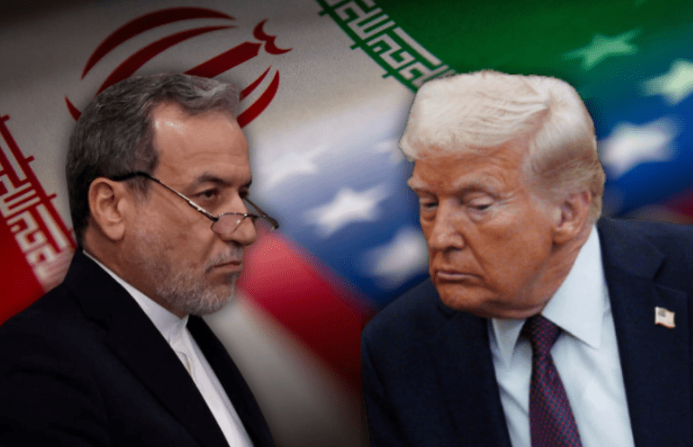
Iran Likely to Reject U.S. Nuclear Proposal, Says Senior Diplomat
Tehran has consistently dismissed Western nations’ claims that it is attempting to create nuclear weapons, stating that its goal is to master nuclear technology for peaceful purposes.
An Iranian ambassador stated on Monday, June 2, 2025, that Iran is ready to reject a U.S. plan to resolve a long-standing nuclear disagreement, calling it a “non-starter” that does not take into account Tehran’s interests or compromise Washington’s position on uranium enrichment.
“Iran is drafting a negative response to the U.S. proposal, which could be interpreted as a rejection of the U.S. offer,” the senior diplomat, who is close to Iran’s negotiating team, told Reuters.
On a brief visit to Tehran, Omani Foreign Minister Sayyid Badr Albusaidi, who has been mediating negotiations between Tehran and Washington, provided Iran with the U.S. proposal for a new nuclear agreement on Saturday.
There are still a number of issues following five rounds of talks between Iranian Foreign Minister Abbas Araqchi and Steve Witkoff, President Donald Trump’s Middle East envoy.
These include Iran’s unwillingness to transport its complete stockpile of highly enriched uranium, a potential raw material for nuclear bombs, overseas and its rejection of a U.S. demand that it commit to ending uranium enrichment.
Tehran has consistently dismissed Western nations’ claims that it is attempting to create nuclear weapons, stating that its goal is to master nuclear technology for peaceful purposes.
“In this proposal, the U.S. stance on enrichment on Iranian soil remains unchanged, and there is no clear explanation regarding the lifting of sanctions,” said the diplomat, who declined to be identified due to the sensitivity of the matter.
Tehran will formally address the request shortly, according to Araqchi. No comment was offered by the U.S. State Department. Tehran insists that all restrictions imposed by the United States that harm its oil-based economy be lifted immediately. However, the United States argues sanctions tied to nuclear power should be lifted gradually.
Since 2018, Washington has blacklisted dozens of organisations that are essential to Iran’s economy, such as the national oil corporation and central bank, for allegedly “supporting terrorism or weapons proliferation.”
Tightening sanctions and threatening to destroy Iran if the discussions fail to produce a deal are two examples of Trump’s renewed “maximum pressure” against Tehran since he returned to the White House in January.
During his first term in 2018, Trump ditched Tehran’s 2015 nuclear pact with six powers and reimposed sanctions that have crippled Iran’s economy. Iran responded by escalating enrichment far beyond the pact’s limits.
Under the deal, Iran had until 2018 curbed its sensitive nuclear work in return for relief from U.S., EU and U.N. economic sanctions. Under the direction of Supreme Leader Ayatollah Ali Khamenei, the diplomat added, the “Iran’s nuclear negotiations committee” had determined that the U.S. plan was “completely one-sided” and could not benefit Tehran.
According to the diplomat, Tehran views this plan as a “non-starter” and thinks it is an attempt to unilaterally force Iran to accept a “bad deal” through onerous criteria.
Nuclear standoff between U.S. and Iran
The stakes are high for both sides. Mr. Trump wants to curtail Tehran’s potential to produce a nuclear weapon that could trigger a regional nuclear arms race and perhaps threaten Israel. Iran’s clerical establishment, for its part, wants to be rid of the devastating sanctions.
Iran claims it is willing to accept certain enrichment restrictions but demands strict assurances that Washington won’t back out of a future nuclear agreement.
In a “political deal” that may lead to a larger nuclear agreement, two Iranian officials told Reuters last week that Iran could halt uranium enrichment if the United States released Iranian cash that had been frozen and acknowledged Tehran’s right to refine uranium for civilian use.
Iran’s arch-foe Israel, which sees Iran’s nuclear programme as an existential threat, has repeatedly threatened to bomb the Islamic Republic’s nuclear facilities to prevent Tehran from acquiring nuclear weapons.
Araqchi, in a joint news conference with his Egyptian counterpart in Cairo, said: “I do not think Israel will commit such a mistake as to attack Iran.”
Meanwhile, military defeats for Tehran’s forces and those of its allies in the Shi’ite-dominated “Axis of Resistance”—which includes Iraqi militias, Hamas, Hezbollah, and the Houthis in Yemen—have reduced Tehran’s regional power.
In an effort to reduce the likelihood of confrontation with Israel, Saudi Arabia’s defence minister bluntly advised Iranian leaders in April to consider Trump’s offer of a new agreement.


